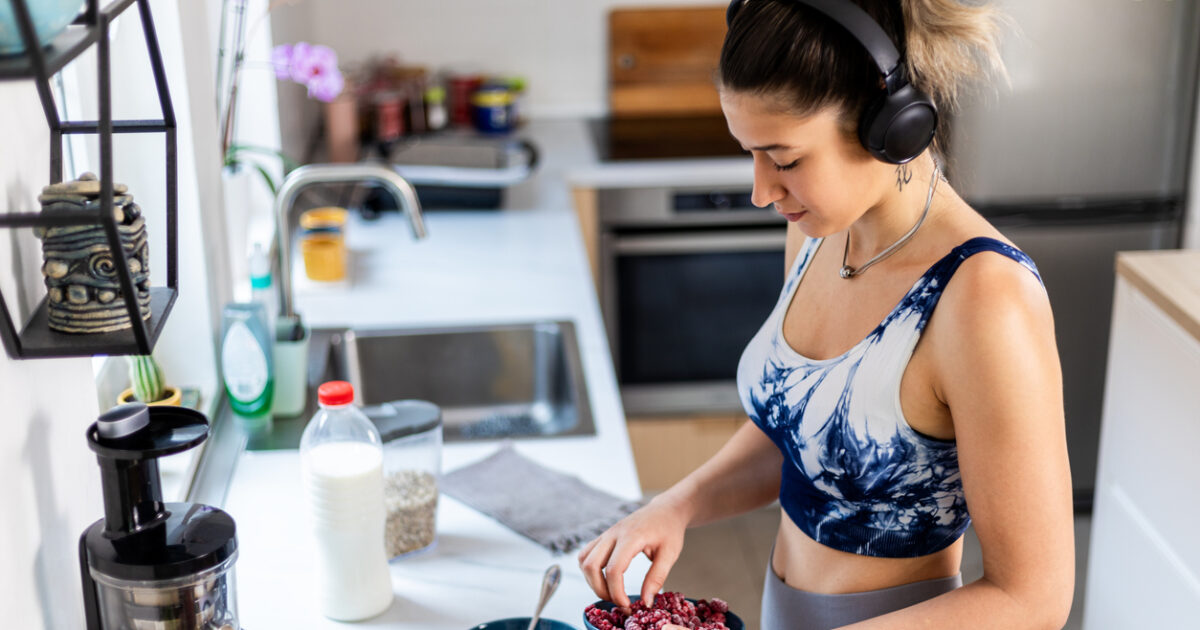When we talk about the diet of the athletewe often hear about carbohydrates, proteins and hydration. But what about the fiber (fibre); According to a recent article in Sports Medicinefiber has been largely ignored in athletes’ diet – and this is an important overlook.
‘Fiber do more than help digestion. They play a key role in maintaining bowel health, balance of metabolism and even rehabilitation after intense workouts. The authors suggest athletes aiming to hire about 30 grams of fiber a day, including about 2 grams of β-glucan (type of fiber found in oats and barley). The secret? Enter them gradually within six weeks so that your body is adapted.
There are also times when the decrease in fiber is logical – as before a big race, to avoid stomach problems. But for long-term health and performance, fiber must be in the spotlight, ”explains Dimitra Efthymiopoulou Dietitian-Nutritionist and continues:
Fiber in the spotlight: Why should athletes be interested in
Most nutritional advice on sports is focused on carbohydrate – How much to eat, when to eat them and what types are best around training. Fiber is usually referred to as something that must be limited before exercise to avoid bloating or cramps.
But this is just a part of the story. Fiber actually support bowel health, reduce inflammation and help in a feeling of satiety – important factors for those who train hard or try to manage their weight. Ignore fiber in athletes’ diet no longer makes sense.
Not all fiber is the same
You may have heard the terms “soluble” and “insoluble” fiber. But the latest research focuses on how fiber nourishes your bowel bacteria. Scientists are now talking about “microbiota-accessible carbohydrates”, that is, types of fiber that can use bowel germs.
Some fibers, such as beta-glucans and psyllium, help slow down digestion and maintain stable blood sugar. Others, such as inulin or resistant starch, are kneaded in the intestine and create beneficial by -products such as butyrate. These enhance the strength of the intestinal barrier, reduce inflammation and can even affect muscle mood and health. The right choice of fibers can have significant benefits.
A healthy gut begins with the right fibers
Consumption of carbohydrates accessible by the microbiome can increase the number and variety of good bacteria in the gut. This is extremely important for athletes, because these bacteria protect the intestinal wall and reduce the symptoms of “leaky gut” that may result from intense exercise.
For example, the durable starch reinforces germs like Ruminococcus Bromii and Bifidobacterium young. These bacteria produce compounds such as butyrate that nourishes intestinal cells and strengthens intestinal walls. Without sufficient fiber, bowel bacteria may begin to produce harmful by -products and, in extreme cases, even attack the intestinal wall. Fiber maintains balance.
Do athletes get enough fiber? Not really
Although the general recommendation for fiber is 25–38 grams a day, many athletes do not reach these levels – especially endurance athletes, bodybuilders and players. Some only consume 16–25 grams.
Sometimes this is intentional – as consumption diet low in fiber (“Low-Residue” Diet) before a fight to avoid gastrointestinal problems. But if this becomes a long -term habit, it can harm bowel health. On the contrary, if you try to lose weight or limit calories, increasing fiber can help to feel satiated and maintain a healthy bowel.
How do fiber and protein work together
Athletes often consume large amounts of protein for muscle growth and restoration. But without sufficient fiber, high protein diets can reduce the variety of bowel bacteria and produce toxic by -products. The solution? Make sure you also consume several fiber. When you do, your gut remains healthy – even with high protein intake.
Some athletes follow Ketogenic Diets to lose fat or improve endurance. But ketogenic diets often exclude most carbohydrates and fiber, which can damage bowel health. Adding fiber to these diets can help restore balance to the intestinal microbiome and general health.
What is it that makes B-glucan special?
B-glucan, a type of soluble fiber found in oats and barley, stands out. Studies show that only 2 grams a day can improve endurance, increase strength and reduce inflammation after exercise. Although more research is needed, it seems to be a simple addition with significant benefits for sports active people.
Personalized fiber? Yes, please
Not all fiber are the same. Everyone’s intestinal microbiomes are unique, so you can react differently to different types of fibers. For example, if you do not have the right bacteria, inulin can cause inflammation instead of helping.
That is why the authors believe that we need more personalized fiber guidelines. The simple addition of more fibers is not always better – depends on the needs of your own bowel. In the future, exams could help athletes choose the most appropriate fibers for their bodies.
The conclusion: Time to re -think fiber
“The article presents a strong argument: fiber is not just about digestion – they are essential for athletic performance, rehabilitation and long -term health. Athletes should target about 30 grams a day, including specific types such as β-glucan. But do not overdo it – gradually proceed within six weeks so that your body is adapted.
Fiber must become part of the discussion in athletes’ diet. Whether you are training hard, managing your weight or recovering from a race, the right fiber can support your gut, keep you healthy and may still give you a lead, ”concludes Mrs Efthymiopoulou.
